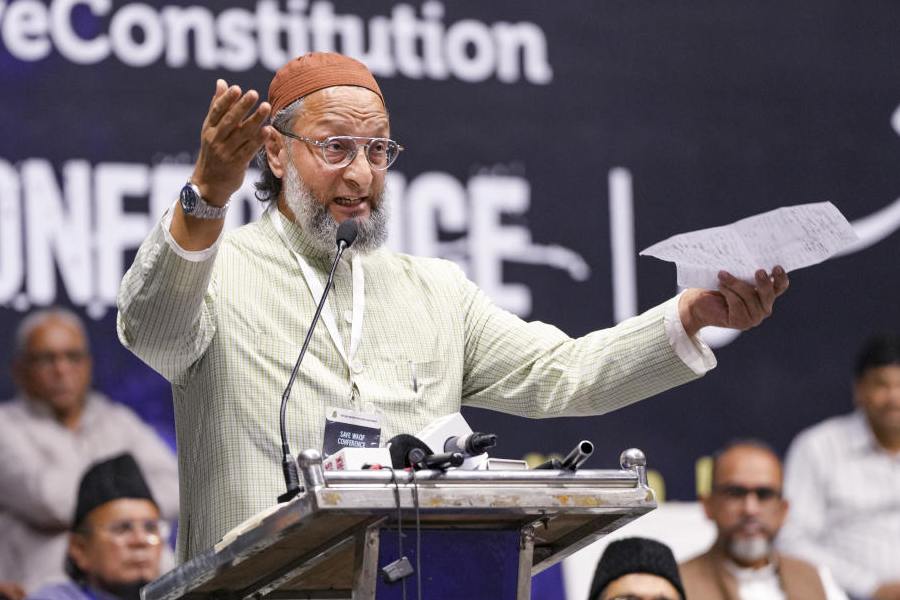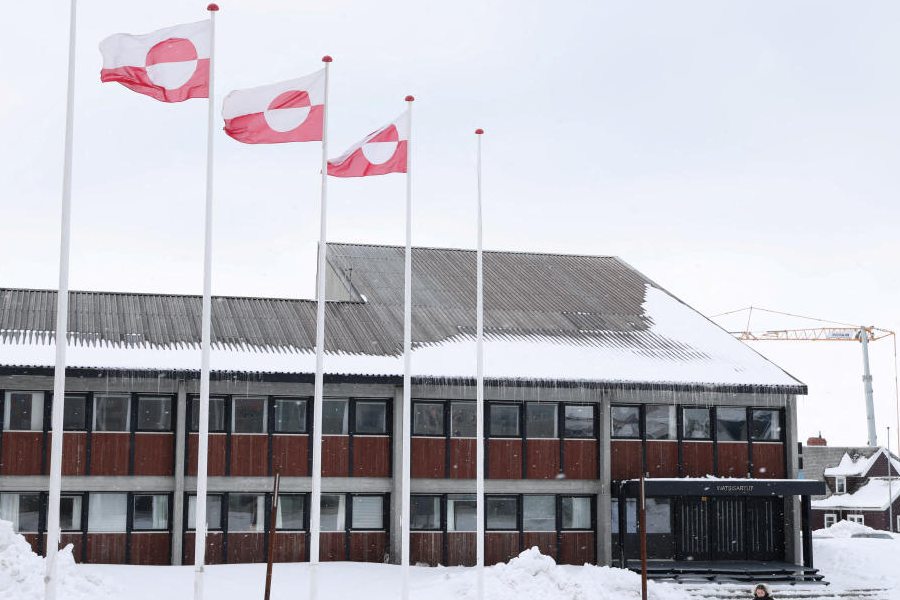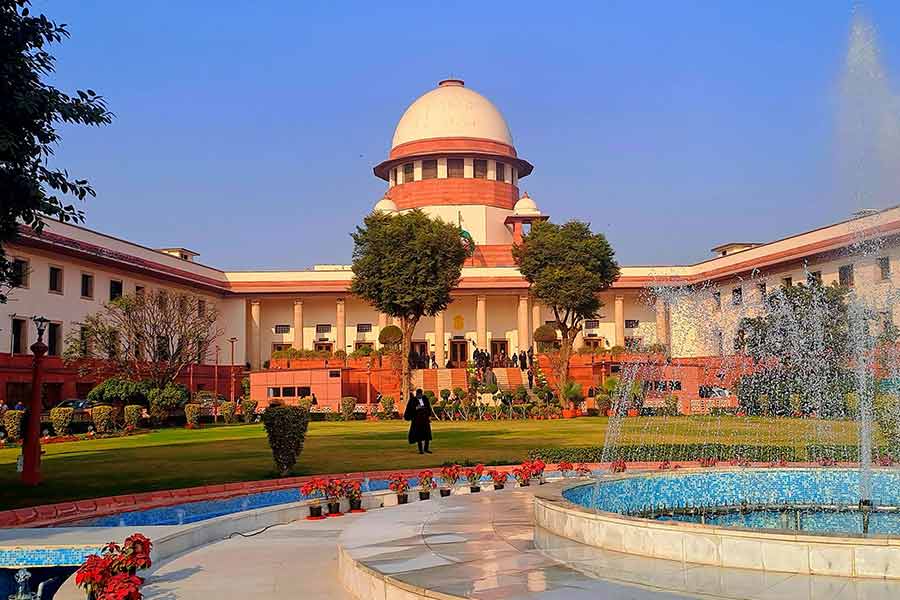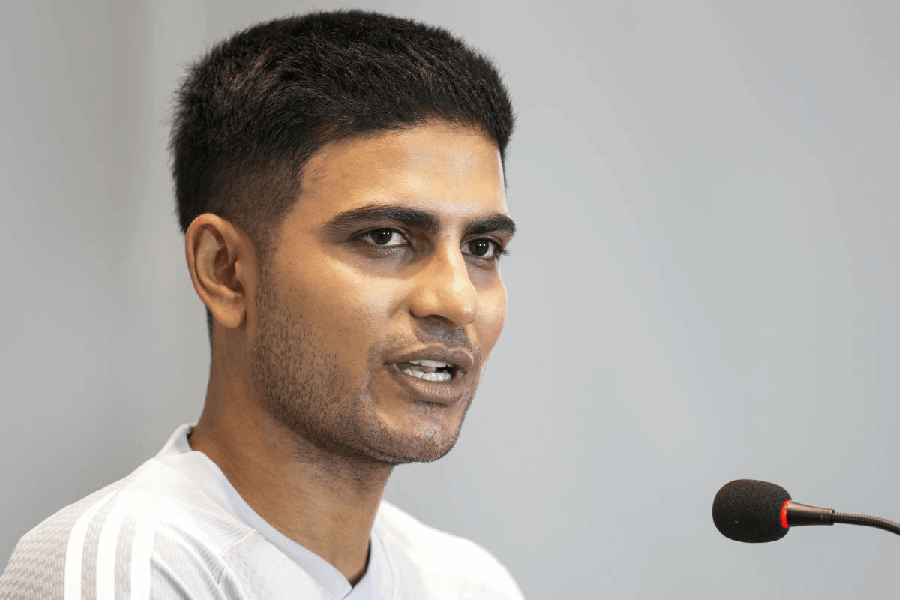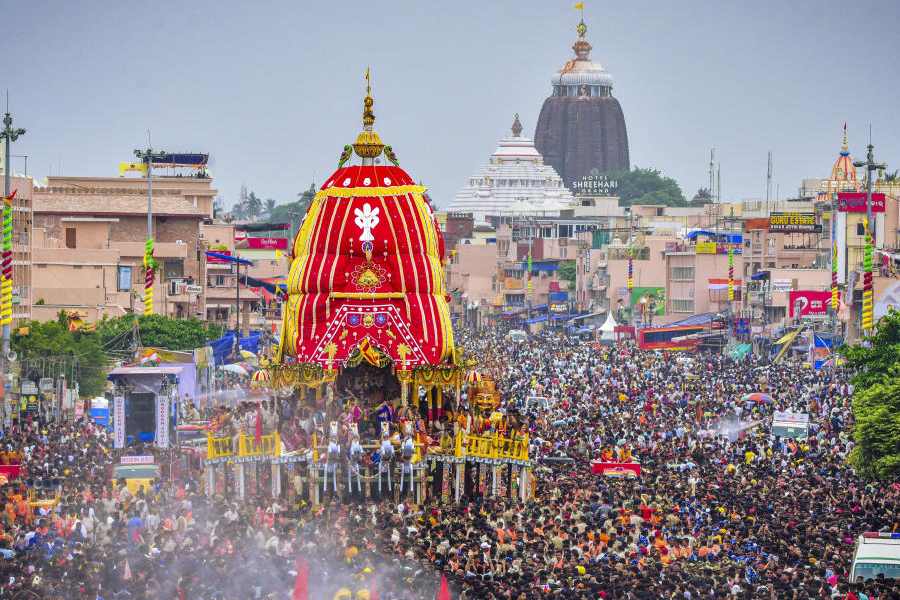Lucknow, Sept. 23: Allahabad High Court has directed that the Shankaracharya (chief) of Jyotirmath Badrikashrama in Badrinath, one of the four Hindu shrines, be selected within three months and that till then the post be considered vacant, bringing to an end a 57-year-old battle.
The court rejected the claim of both Swami Swaroopanand and Swami Vasudevanand Saraswati, saying their anointment was illegal and invalid. Both Swaroopanand and Vasudevanand have been claiming to be the Shankaracharya of Jyotirmath Badrikashrama since 1973.
While Swaroopanand is believed to be enjoying the support of the Congress for decades, Vasudevanand is said to be backed by the Vishwa Hindu Parishad and the BJP.
Although Swaroopanand enjoys more support, he had been appointed illegally. Vasudevanand, on the other hand, does not have all the qualifications to be become Shankaracharya.
The tussle over the real claimant to the post of Shankaracharya traces its roots to a similar fight in the regime that preceded Swaroopanand and Vasudevanand.
Allahabad High Court today tasked the Akhil Bharatiya Dharm Mahamandal - an association of sadhus - and the Kashi Vidwat Parishad - an outfit of Sanskrit scholars and saints - with appointing a qualified Shankaracharya in consultation with the chiefs of the other three Hindu shrines.
Till a new Shankaracharya is appointed, Swaroopanand would act as the caretaker of Jyotirmath Badrikashrama.
The legal battle began in 1960 with the filing of a case in a civil court in Badrinath in undivided Uttar Pradesh.
Since then, the case had been transferred to many courts and several orders were passed.
Vasudevanand had moved Allahabad High Court in 1989 after a lower court struck down his claim to the post of Shankaracharya of Jyotirmath Badrikashrama.
Although the state of Uttarakhand, in which Badrinath falls, was carved out of Uttar Pradesh in 2001, the case continued to be heard by Allahabad High Court.
The high court had reserved the order on January 3 this year and pronounced it yesterday.
The bench of Justices Sudhir Agarwal and Kaushal Jayendra Thaker upheld a lower court's order preventing Vasudevanand from using the holy stick and umbrella, which only a genuine Shankaracharya is entitled to.
The court said Adi Shankaracharya had in the 8th century AD founded the four holy shrines in four parts of the country - Jyotirmath Badrikashrama in Badrinath in the north, Sharda Math at Dwarkadham in Gujarat in the west, Sringeri Math at Rameshwaram in Tamil Nadu in the south and Govardhan Math at Puri in Odisha in the east.
He had also appointed the heads of these shrines and they came to be known as Shankaracharyas. Since then, the tradition is that a Shankaracharya appoints his successor in his lifetime.
"No other person should be allowed to claim that he is Shankaracharya. The government should take action against the self-styled Shankaracharyas and audit the properties of the religious seats in the country," the court observed.
Swaroopanand is the Shankaracharya of Sharda Math as well. Bharati Krishnateerth is the chief of the math in Rameshwaram and Nishchalanand Saraswati heads Govardhan Math.
The court observed that Swami Shatanand had been made Shankaracharya of Jyotirmath Badrikashrama on June 12, 1953, by the then Shankaracharya. But Swami Krishna Bodhashram was illegally appointed to the same post on June 25 that year.
The civil court had on January 15, 1970, said Shatanand was the rightful Shankaracharya and declared Krishna Bodhashram's appointment null and void.
Krishna Bodhashram, who continued to claim that he was the real Shankaracharya, passed away on September 10, 1973, after declaring Swaroopanand as his successor.
Later, Sachchidanand Teerth, the then Shankaracharya of Dwarkadham, named Swaroopanand as his successor on May 27, 1982.
Shatanand resigned after a few years and appointed Vishnudevanand Saraswati as his successor. Vasudevanand was appointed Shankaracharya on November 14, 1989, after the death of Vishnudevanand.
The high court said Vasudevanand didn't deserve the position because he was not a Dandi sanyasi - who is given a wooden holy stick by a committee of the senior-most sadhus, a precondition for becoming Shankaracharya.
A Shankaracharya should also be a learned Sanskrit scholar, with knowledge of the Vedas, the Upanishadas, the Puranas and the Vedanta. Swaroopanand is widely considered such a scholar.
Vasudevanand was not a sanyasi before 1989. He was a teacher in a government-aided school and drew salary till November 13, 1989. However, the court accepted the argument that Vasudevanand has been leading the life of a saint since leaving the job.


